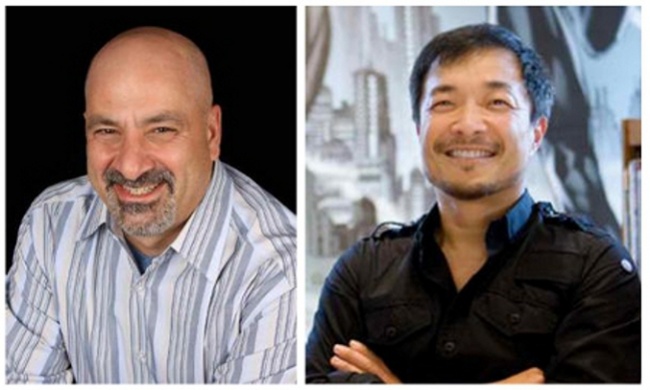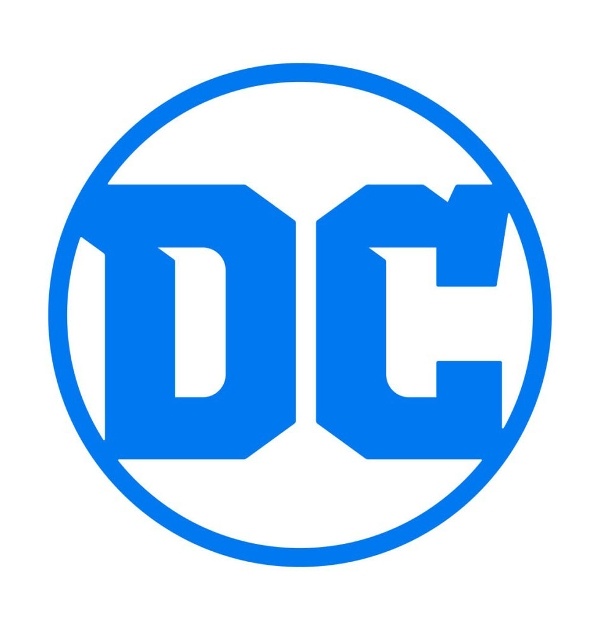We caught up with DC Co-Publishers Dan Didio and Jim Lee at San Diego Comic-Con for our annual interview. In Part 2 of this two-part interview, we talk about the demographics of DC readers and different ways of measuring them, and steps DC is taking to get and keep top talent. In Part 1, we talked about the dip in comic store graphic novel sales, the differing impacts of Wonder Woman on sales, and DC revealed two new graphic novel lines in the planning stages.
What is the current demographic of the audience reading DC across channels compared to what it was five years ago?
Didio: It's interesting. It's shifted a bit. We have seen an influx of female readers. We had a discussion with some of our sellers, like Barnes & Noble and our Random House reps, and we're seeing a larger infusion of female readers in the bookstore markets.
We're seeing some of it in the direct market, but I think we're seeing a better growth with graphic novels with female readership. DC Super Hero Girls, naturally, is off the charts for that, as well.
Do you think that might explain the difference in the Wonder Woman performance in bookstores versus comic stores?
Didio: It depends. For people coming in brand new to Wonder Woman, they might not know where a comic store is, but they might be walking through a bookstore or, we're forgetting our biggest retailer, Amazon. It's very easy. They see a movie, hear about a movie, they go online, they press a button, and they get the book shipped the next day. That's a way for people to explore what it is.
When we look at a movie coming out, we curate a very tight list of what we think is the best representation of the character, and we put a lot of marketing support behind that to make sure people are aware of what we think are the best books to read if they were enjoying the movie experience.
You might see George Pérez's book because of the Ares tie, or the Brian Azzarello / Cliff Chiang, "New 52" Wonder Woman because it was a lot of inspiration material in there. We make sure they are out there buying those types of product, and we are out there promoting it very heavily both in the bookstore market and direct market.
Direct market people are probably aware of it already. They might even have it, but for the people coming in brand new, they might be buying it online or in the bookstores.
You mentioned that your female readership is up. To what kind of percentage of the total?
Didio: We don't have the percentages broken down. This is all anecdotal that we hear from the stores themselves. We hear it from the retailers that we speak to, that they feel that they get more traffic now from female buyers.
You go to conventions, you can see the change in conventions over the years as well on who is participating in these shows. Where we see the real growth is in the bookstore market.
Lee: We have information from our digital sales, for example. We will have some titles -‑ and I want to say it was Smallville ‑- that track as high as 40% female, or at least the people that were purchasing the content through their accounts.
I have information, my own anecdotal information like my Instagram account -- 270,000 followers. I don't know how of many of those actually read comic books, but they break down male/female, and that's about 85/15.
If I had to hazard a guess, I feel very confident that that number [the percentage of female readers of DC] is between 15 and 40%.
That's up from where it was, for sure.
Lee: Absolutely. This is my 31st Comic-Con in a row. I know for sure that it was 95% male back in the day.
You see it at the shows, at the panels, and we have Facebook data. Again, it's hard to track exactly how many of those people are buying comics, but certainly, the audience has changed, and for the better.
One of the things we talked about a little the last few years is getting and retaining talent. DC is in the position, with your legacy characters, of trying to get and retain talent working on characters they didn't create and don't own. We know you’ve got some new initiatives going. What's DC's current thinking about that challenge?
Didio: Dark Matter is a huge influx in new characters into the DCU. What we did is we brought top talent on board. We have Jim (Lee). Andy Kubert, John Romita Jr. and a lot of key creators are coming on board to help really elevate and draw attention to these new characters, because it's so hard to get recognized in a crowded marketplace, so you really need the talent to help draw that attention (see "Jeff Lemire Returns to DC to Write 'The Terrifics'").
All these talents are participating in the books, whether that's creator-owned, or taking equity positions. They have vested value in participating and helping creating this. If these books win, we all win, which is, I think, the fairest way to approach anything.
It's an exciting moment for us because I feel honestly, since I've been at DC (and you can look back almost to the start of Image), this is probably the largest creation of new ideas, new books on the super hero level coming from a major company.
Those deals are different than the deals they would have had working on a normal book and creating a character or...?
Didio: We take great pride, at DC, to make sure that we compensate creators, not just for creating new ideas, but adding ideas to existing characters. We've also compensated creators for storylines that are used in movies or TV.
Jim and I, we were joking. We had to sign a big pile of checks that goes out to hundreds of creators for their contributions to DC because all this material now is being exploited in film, TV, gaming, animation, everything that we are here.
We want to make sure that everybody feels that they are being properly compensated for their work being used in other media. That's something that is done on a contractual level, but also on a discretionary level, too.
We make sure that we are approaching this as fairly as possible. This initiative is led by (President of DC Entertainment and President of Warner Bros. Consumer Products) Diane Nelson. She feels extraordinarily strong about it. She wanted us to be a talent-friendly company from the moment she walked in the door. Everything we do is with the talent's interest in mind. By doing so, we feel we get the best product at the end of the day.
Click here to go back to Part 1.

On the Demographics of DC Readers, Getting and Keeping Talent
Posted by Milton Griepp on August 7, 2017 @ 5:47 am CT



